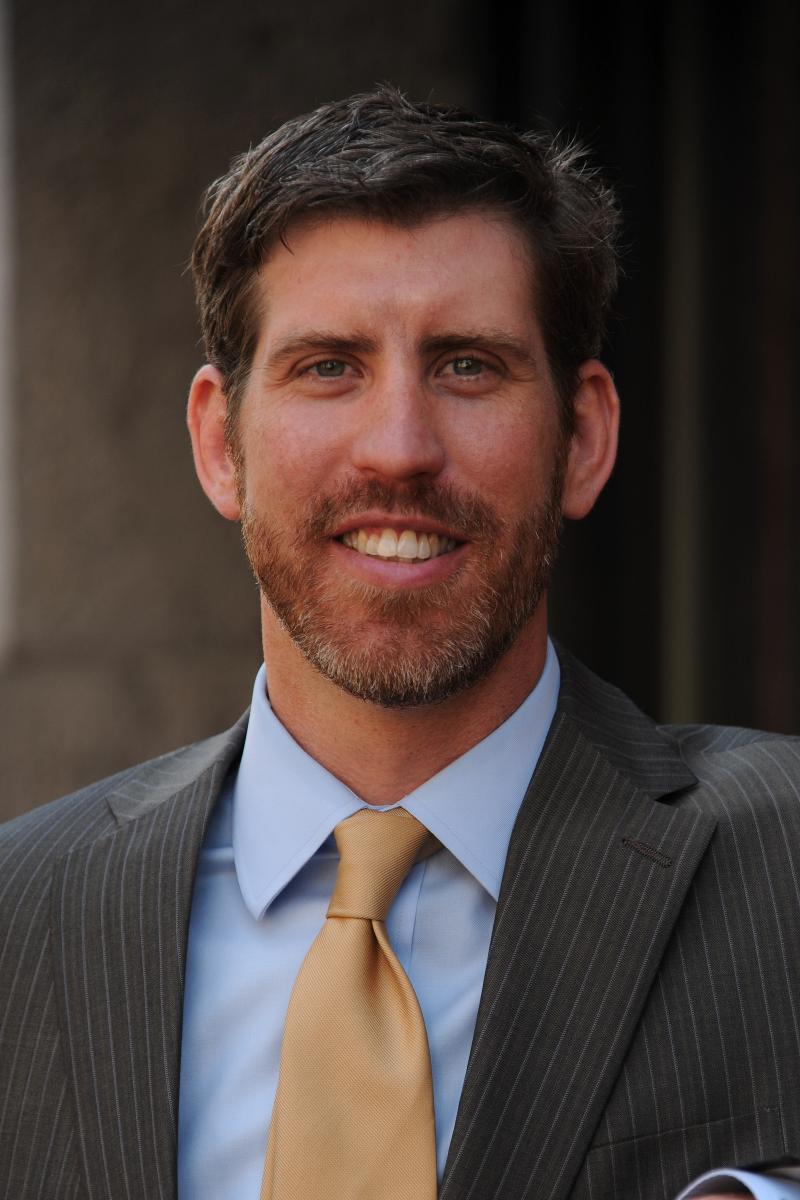

Please let us know if we can assist you in any way. You may reply to this email or call us at 303.679-8266. You can also visit our website at www.grobeirich.com.
We hope you are enjoying all the wonderful outdoor activities of a great Colorado summer.
Sincerely,
|
|
 Revised Adoption Subsidy Legislation
Revised Adoption Subsidy Legislation
Last summer, our newsletter featured an interview with Colorado's Child Protection Ombudsman, Stephanie Villafuerte, about the adoption subsidy program and how the system was unfair to families.
The Ombudsman office had received a complaint, and after a 16-month investigation, released a report about disparities and inconsistencies in how adoption assistance services were being determined and provided across the state. You can read that article in our
newsletter archive.
In response to this report, a two-year monumental effort involving approximately 30 stakeholders was undertaken, and as a result, Colorado passed a new adoption subsidy law which completely replaces the 1970's law.
The group of stakeholders met multiple times to draft and debate new legislation. The group included county and state departments of human services, private adoption agencies, adoption advocates, and our firm, among others. The Child Protection Ombudsman spearheaded the effort.
The new law will result in import changes for special needs children being adopted both publicly and privately. Among numerous revisions, the new law now:
- Prevents counties from having a two-tiered foster/adoption subsidy rate system;
- Allows the subsidy rate to be negotiated up to the foster care rate (which was recently raised across the board to approximately $1,100 per month);
- Eliminates the reasonable effort requirement for private adoption agencies to seek and find an adoptive family willing to take the child without a subsidy where the birth parent designates an adoptive family;
- Allows past adoptive families who have been receiving a subsidy to renegotiate a new subsidy based upon what the child currently would receive if the child was placed in foster care; and
- Clarifies that children previously who were in the child welfare system who are now being adopted privately, be eligible for adoption assistance.
Grob & Eirich began using the new law to negotiate better subsidies for their clients before its enactment date of August 2, 2019. An example is a foster family who wanted to adopt a medically fragile child on a feeding tube. The father left the workforce to care for the child full-time. The family came to Seth Grob for help and the firm was able to rely upon the new law to obtain a subsidy of $1,100 per month with Medicaid and reimbursement of attorney fees and costs, even though the cap for the County's current subsidy policy was considerably less.
"I'm excited about this new subsidy law as it will create greater equality for children across the state and enable them to receive greater assistance and support statewide," says Seth. "Our firm was integrally involved in the process, providing both technical expertise and helping to draft the new legislation. This new law was enacted because stakeholders shared a common vision of wanting to provide greater assistance to special needs children needing to be adopted."
|

 New Law Protecting Vulnerable Immigrant Youth
Grob & Eirich attorney Katie Glynn helped to draft, and then testified in support of, Colorado legislation extending Colorado State court jurisdiction for certain vulnerable youth. Immigrant children between the ages of 18 and 21, who have been victims of parental abuse, neglect or abandonment, are now able to access the protection of Colorado State courts and request findings establishing their eligibility to apply for Special Immigrant Juvenile Status (SIJS), a path to lawful permanent residency and U.S. citizenship.
To qualify for SIJS, an immigrant child must be under the jurisdiction of a State or juvenile court and that court must make findings and conclusions that establish the child's eligibility for SIJS, including that the child cannot be reunited with one or both parents and that it would be in the child's best interest to not return to their home country.
Federal law allows unmarried children under the age of 21 to apply for SIJS but many immigrant children in Colorado were foreclosed from accessing this federal pathway to immigration status when they turned 18 because Colorado State courts hearing guardianship and allocation of parental responsibilities cases did not have jurisdiction over them.
This new law reconciles Colorado State law with the federal immigration statute allowing State court jurisdiction for certain children ages 18-21 years in guardianship and custody proceedings. Other states have passed similar legislation including California, Connecticut, Maryland, Massachusetts, New Jersey, New York, Nevada, and Washington.
The legislative process involved many parties including the ACLU, the Rocky Mountain Immigrant Advocacy Network, the Rocky Mountain Children's Law Center, the Office of the Child's Representative, as well as national immigrant advocacy groups. The legislation was sponsored by State Rep. Serena Gonzales-Gutierrez and Sen. Julie Gonzales. The legislation was signed into law by Gov. Jared Polis on March 28, 2019 and became effective immediately.
"The first call I made after the law passed was to a young woman I had met a few years earlier," says Katie. "She grew up with an alcoholic and abusive mom in Costa Rica and came to the U.S. when she was 17. The girl and her aunt met with me then and I told them about SIJS but they did not proceed with the case. Last year, I met with the young woman again and learned that she had been abandoned by her aunt. She had recently turned 19, and therefore I was unable to help her. With this new law I am now helping her and her caretaker with a Petition for Guardianship in the Colorado courts; and hopefully, will soon help her apply for SIJS. The case is pending but I'm expecting a positive result which will enable her to legally remain in the United States and pursue educational and employment opportunities."
|
Introducing Kate Stafford, Paralegal
 Grob & Eirich introduces our new paralegal, Kate Stafford. Kate is busy working with our attorneys and clients. She is responsible for drafting documents, researching cases and filing documents at court houses.
Grob & Eirich introduces our new paralegal, Kate Stafford. Kate is busy working with our attorneys and clients. She is responsible for drafting documents, researching cases and filing documents at court houses.
Kate earned her undergraduate degree at the University of Georgia and her law degree at California Western School of Law in San Diego. She worked as a law clerk in San Diego and in data and research at the Polaris Project in Washington D.C. She has also volunteered with Denver CASA. She is preparing to take the Colorado bar in February of next year.
"When I was a sophomore, I spent a summer in Boulder. I loved how easy it was to get outside. I knew I wanted to move to Colorado," says Kate. "I've always been interested in child welfare and adoption law. It's taken a while to get back to why I originally went to law school. I'm thrilled to be working with the attorneys here at Grob & Eirich
|

Katie Page always wanted to be a parent, so she became a foster parent and cared for baby Grayson before adopting him when he was 11 months old. A month later she received a call about a newborn girl named Hannah who also needed a home.
When Katie brought Hannah home, she noticed the first name of the biological mother was the same on the hospital bracelet, but the last name was different. She started to research and found that both children had been exposed to methamphetamines in the womb and their birth mother had the same birthdate. She discovered that the children were half-siblings.
Then some family members who were distant relatives to Hannah got involved and w
anted to adopt her. Katie was advised to hire a lawyer and that's when she was referred to Tim Eirich.
"He was like a preacher up there," says Katie. "He understood me and my values and how I wanted to handle things. He was the voice for me. He said what I would have said, but better. Plus, he knew the law better than anyone else in the room."
"We advocated for the siblings to stay together," says Tim. "We were successful because not only does the law recognize a preference for sibling groups to remain together but also because Katie navigated the complex relationships with such perspective and grace."
Katie successfully adopted Hannah and recently a third child was identified as another half sibling. Katie is currently fostering this third child and will be adopting this child in November during National Adoption Month.
"I have stayed in touch with the distant family, and now they plan to come back for the adoption," says Katie. "It could have been so bad, but Tim helped us build a bridge instead. Now we are a big extended family."
|

Partner Profile:
Colorado State Foster Parent Association

This month we highlight one of our great partners, Colorado State Foster Parent Association (CSFPA). CSFPA is a voice for all foster, kinship and adoptive families in Colorado. They provide education programs, support referrals, and advocacy.
Since approximately 14% of children are placed with family members, CSFPA extends its educational support to include "kinship" parents in addition to certified foster parents in order to positively impact and improve care provided to all of Colorado's children in placement.
"CSFPA is a huge educational and support service for foster parents in Colorado," says Tim Eirich. "While I do legal trainings for them, the best service they provide is practical advice and support for foster parents in dealing with the emotional toll that caring for traumatized children takes. They are a gre
at resource for foster and kinship families in Colorado."
|
Presentations and Committees
Seth Grob
Lutheran Family Services Rocky Mountains, "Expedited Relinquishments and Contested Adoptions," (Lakewood, July 2019)
Hope's Promise, "Expedited Relinquishments and Contested Adoptions," (Castle Rock, July 2019)
Adoption Choices of Colorado, "Expedited Relinquishments and Contested Adoptions," (Lakewood, May 2019)
Duke University Law School, Silent Victims: Foster Care and Foster Care Adoption in America: ("The Opioid Crisis: What Can Be Done for the Children"), (Durham, November 2018).
Family Formation Charitable Trust of AAAA, Grant Review Committee [2019-2020]
Tim Eirich
"Play Therapy in the Courtroom: A Play Therapist's Guide to Court Testimony," with Dr. Amy Long, (Monument, August 2019)
Lutheran Family Services Rocky Mountains, "Expedited Relinquishments and Contested Adoptions," (Lakewood, July 2019)
Hope's Promise, "Expedited Relinquishments and Contested Adoptions," (Castle Rock, July 2019)
Adoption Choices of Colorado, "Expedited Relinquishments and Contested Adoptions," (Lakewood, May 2019)
Katie Glynn
Federal Bar Association Immigration Law Conference, panelist, "SIJ Updates and Practice Pointers," (Austin, Texas May 2019).
Denver Bar Association Young Lawyers Division Coffee Talk, "Special Immigrant Juvenile Status in Colorado and HB19-1042," (Denver, April 2019).
Colorado Chapter of AILA, co-presenter, "Special Immigrant Juvenile Status Updates," (Denver, July 2019).
|
|
|
|
|
|